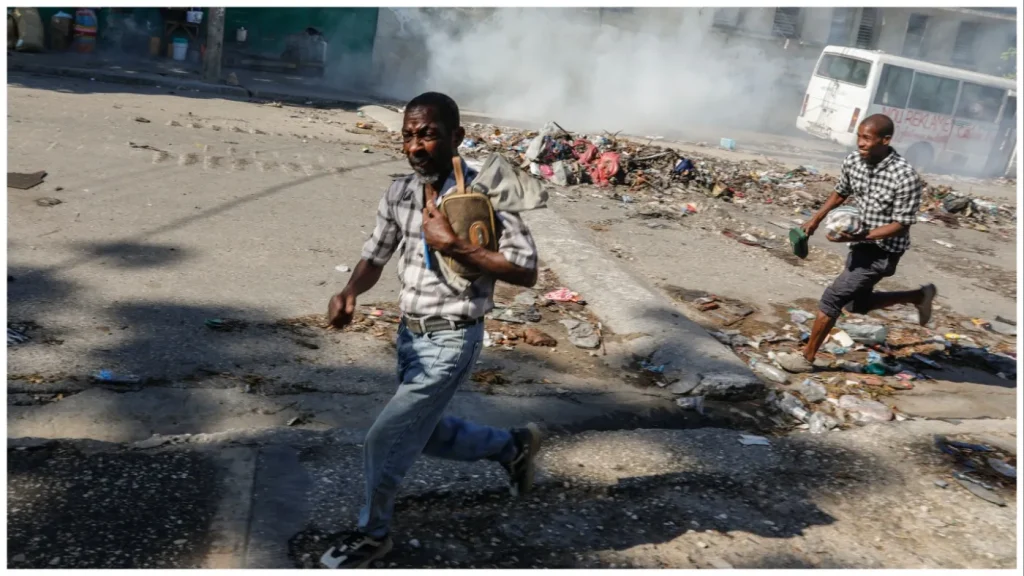The government of Haiti has deployed specialist anti-gang police units following a horrific massacre northwest of Port-au-Prince, which the United Nations reports has left at least 70 people dead.
The attack occurred early Thursday in the town of Pont Sonde, approximately 100 kilometres (60 miles) from the capital. Armed gang members set fire to numerous houses and vehicles as they opened fire on the local population.
This violence comes at a time when an international policing mission, led by Kenyan forces, is working to restore government control in Haiti, where armed gangs have taken over significant portions of both the capital and surrounding areas, contributing to the ousting of the country’s leader earlier this year.
“Members of the Gran Grif gang used automatic rifles to shoot at the population, killing at least 70 people, among them about 10 women and three infants,” said UN Human Rights Office spokesman Thameen Al-Kheetan in a statement on Friday.

In response, the Prime Minister’s office condemned the attack, labelling it unacceptable and calling for a rigorous and coordinated response from the state. The Haitian National Police are set to increase their efforts, with agents from the Temporary Anti-Gang Unit (UTAG) deployed as reinforcements.
Bertide Horace, a spokeswoman for a local civil society group, reported that the attack followed threats made by Gran Grif leader Luckson Elan against residents who refused to pay tolls for using a nearby highway.
Local police officers stationed nearby appeared to be understaffed and reportedly offered no resistance, opting to take cover instead.
The UN noted that at least 16 people were seriously injured, including two gang members shot by police. The gang also set fire to at least 45 houses and 34 vehicles, forcing many residents to flee.
Additional security forces, supported by the Kenyan-led international policing mission, were dispatched to Pont Sonde in the early hours following the attack.
Prime Minister Garry Conille denounced the violence, stating that the heinous crime, perpetrated against defenseless women, men, and children, is not just an attack on these victims but on the entire Haitian nation. Last week, the UN human rights office reported that more than 3,600 people have been killed this year due to gang violence.
Haiti has long been plagued by a combination of political, humanitarian, and gang crises, with armed groups rising to power earlier this year in efforts to oust then-Prime Minister Ariel Henry, leading to assaults on police stations and the international airport.
Many politicians have ties to these armed groups. The US Treasury recently announced sanctions against a member of parliament from the Artibonite Department, where Pont Sonde is located, for allegedly assisting in the formation of the Gran Grif gang to support his 2016 election.
In the wake of political turmoil, Henry, seen as both unelected and unpopular, resigned, paving the way for a transitional government led by Conille, which is now tasked with restoring security and preparing the country for its first elections since 2016.


